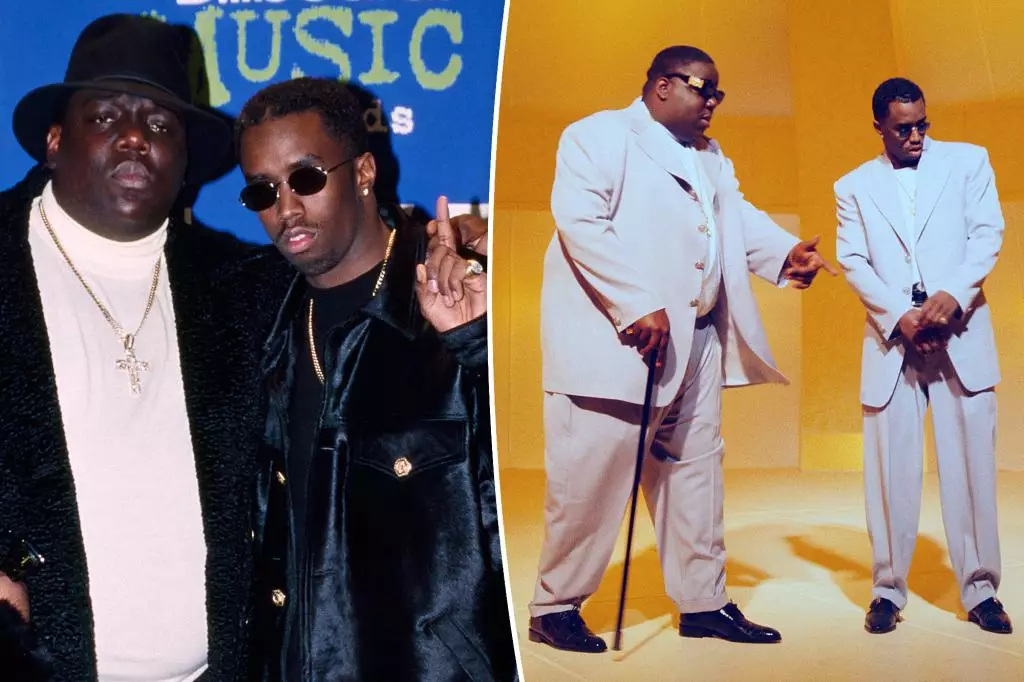In an era where celebrity status often blurs the lines between reality and myth, the recent allegations against Sean “Diddy” Combs highlight a critical truth: no individual, regardless of fame or success, is immune to scrutiny or the potential for moral failure. Over the years, Diddy has built a larger-than-life persona—an emblem of success, influence, and entrepreneurial prowess. Yet, beneath that polished veneer, troubling allegations threaten to unravel the carefully curated image he cultivated in the public eye. This case exemplifies how society’s obsession with celebrity often blinds us to scrutinizing the human flaws that exist behind the glitz and glamour. If the allegations are proven true, they serve as a stark reminder that hero worship can be dangerous, and that no one should be above accountability.
The Power of Allegations and Their Cultural Impact
The recent lawsuit paints a disturbing picture of misconduct associated with one of hip-hop’s most influential figures. Allegedly, Combs engaged in profoundly inappropriate and criminal behavior during a private gathering, in front of a witness. The claims extend beyond mere disrespect, touching upon issues of sexual assault and toxic masculinity. The narrative is compounded by the alleged reference to a late icon, Notorious B.I.G., which taps into a cultural reverence that makes the allegations even more provocative. The juxtaposition of a moment of alleged I misconduct with the homage to Biggie is especially jarring, as it challenges fans’ and the public’s perception of the legendary rapper’s legacy.
This incident exemplifies how allegations can ripple through popular culture, prompting intense debate about celebrity accountability, morality, and the influence such figures wield. It also raises questions about the societal tendency to dismiss accusations when they involve high-profile entertainers. While due process remains essential, the public is increasingly compelled to confront uncomfortable truths about admired figures, questioning whether fame shields individuals from consequences.
Media’s Role in Shaping Today’s Justice and Reputation
The media plays an influential role in amplifying both the allegations and the conversations surrounding them. Coverage often acts as a double-edged sword—while necessary for transparency and accountability, it can also sensationalize and distort facts. In cases like Diddy’s, where legal processes are still unfolding, media narratives shape public opinion and influence perceptions before any verdict is reached. The potential for bias, misinformation, and emotional manipulation makes it imperative for consumers to approach such stories with critical discernment.
Moreover, the recent acquittal on certain charges suggests a complicated legal landscape. Despite being cleared of some criminal allegations, the ongoing lawsuits and reputation damage reveal that reputation damage does not always depend on legal outcomes alone. The sustained attention and scrutiny can be just as potent, often affecting a person’s career and legacy long-term. In this context, the media’s portrayal fosters an environment where public perceptions can sometimes overshadow facts, underscoring the importance of responsible journalism.
Implications for Celebrity Culture and Society
The intersection of these allegations with broader societal issues cannot be overlooked. They serve as a microcosm of ongoing conversations about consent, power abuses, and accountability in industries riddled with exploitation. Celebrity figures often operate within a system that rewards silence and discourages victims from speaking out, which perpetuates cycles of abuse. Diddy’s case, regardless of the eventual outcome, ignites vital discussions about the importance of confronting misconduct head-on—highlighting that stardom should not grant impunity.
Furthermore, the fallout from such allegations can serve as a catalyst for cultural shifts, urging fans, industry insiders, and the legal system to uphold standards that prioritize safety and justice over reputation preservation. For society, it’s a stark reminder that idolization should not come at the expense of moral integrity. True influence involves responsibility—an understanding that fame does not grant exemption from ethical standards.
Ultimately, these troubling allegations challenge us to reevaluate our perceptions of celebrity as untouchable or infallible. Every individual, regardless of achievements or influence, bears human flaws that can lead to grievous misconduct. Society’s task is to navigate this complex reality with honesty and justice—not idolize figures beyond reproach, but hold them accountable when they fall short. Recognizing the fallibility of even the most seemingly powerful is a necessary step toward fostering a culture where integrity, transparency, and accountability are prioritized over myth and fame. Only through such honest reflection can we ensure that justice is served, and true character is valued above celebrity status.

